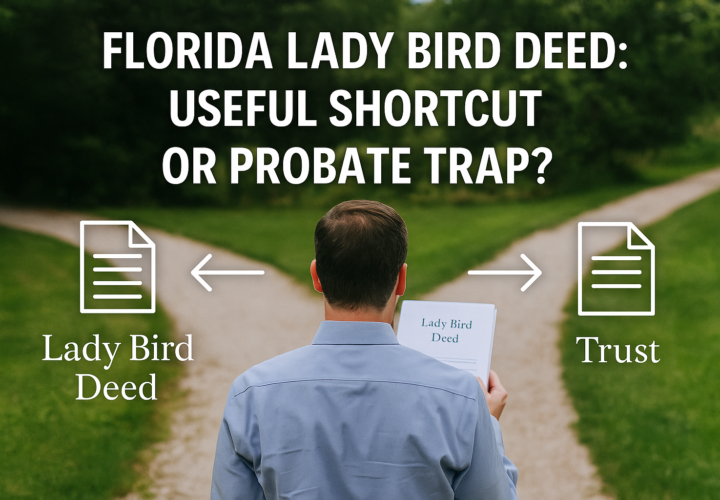When it comes to estate planning in Florida, one of the most common questions people ask is whether they should create a will or a trust. Both documents are important tools that serve different purposes, and understanding the differences between them can help you make the right choice for your estate plan.
What Is a Will?
A will is a legal document that outlines how your assets will be distributed after your death. It also allows you to name a personal representative (executor) to manage your estate and, if you have minor children, appoint a guardian for them. In Florida, a will must meet specific legal requirements, such as being signed by the testator (the person creating the will) in the presence of two witnesses.
What Is a Trust?
A trust is a legal arrangement in which a trustee holds and manages assets for the benefit of beneficiaries. A revocable living trust, the most common type in Florida, allows you to maintain control over your assets during your lifetime and designate how they will be distributed after your death. Unlike a will, a trust can help you avoid probate and may provide other benefits, such as privacy and protection from court intervention in the event of incapacity.
Key Differences Between Wills and Trusts in Florida
- Probate: One of the most significant differences between a will and a trust is how they affect probate. A will must go through Florida’s probate process, which can be time-consuming and costly. A trust, on the other hand, allows assets to be transferred directly to beneficiaries without probate, providing a faster and more efficient way to distribute assets.
- Privacy: In Florida, probate records are public, meaning that the details of your will and estate can be accessed by anyone. A trust allows your estate to remain private because it avoids probate. This can be especially important for individuals who want to keep their financial affairs confidential.
- Incapacity Planning: A will only takes effect after you die, while a trust can be used to manage your assets during your lifetime. If you become incapacitated, your successor trustee can step in to manage the trust assets without the need for court intervention, which is often required with a will-based estate plan.
- Cost and Complexity: Creating a will is typically simpler and less expensive than setting up a trust. However, the probate process can lead to higher costs and delays for your heirs. While a trust may be more complex and costly to create, it can save your beneficiaries time and money by avoiding probate and court involvement.
- Control Over Distribution: A trust provides more flexibility and control over how and when your assets are distributed to beneficiaries. For example, you can specify that certain beneficiaries receive funds at specific ages or for certain purposes, such as education. A will simply distributes assets in a lump sum, which may not be ideal in every situation.
Do You Need Both a Will and a Trust?
In Florida, many people use both a will and a trust as part of their estate plan. This approach allows them to cover all their bases. A “pour-over” will can be used to transfer any assets not included in the trust at the time of your death into the trust, ensuring that all your assets are distributed according to your wishes.
Choosing the Right Option for Your Florida Estate Plan
Whether you choose a will, a trust, or both depends on your specific needs and goals. If avoiding probate, maintaining privacy, and planning for incapacity are priorities for you, a trust may be the better option. However, if your estate is relatively simple and probate is not a concern, a will might be sufficient.
Consulting with an experienced Florida estate planning attorney can help you decide which option is best for your situation. They can guide you through the process and ensure that your estate plan meets all legal requirements and protects your legacy.



